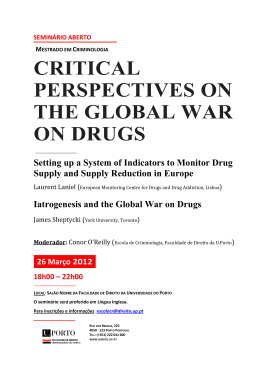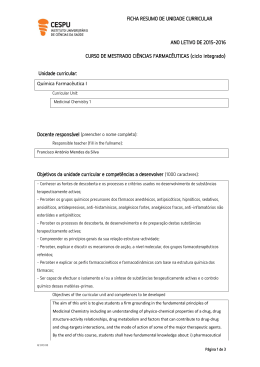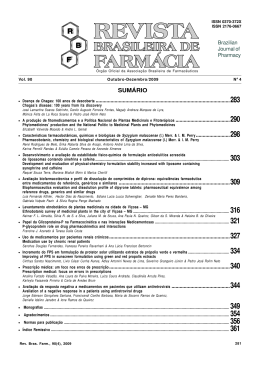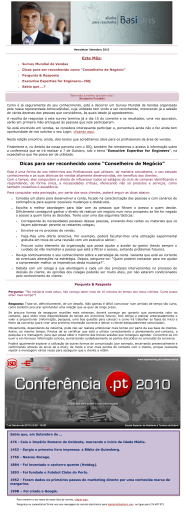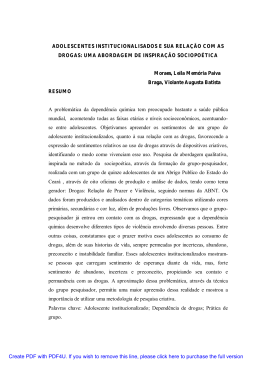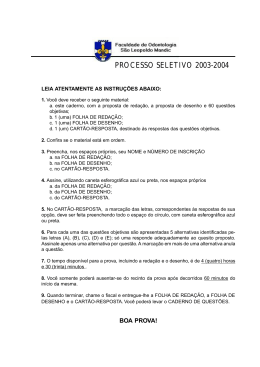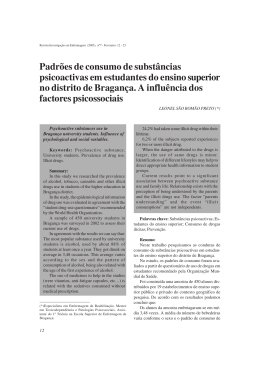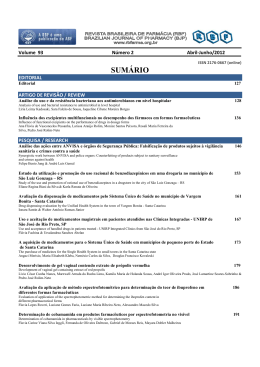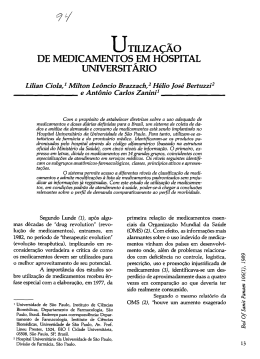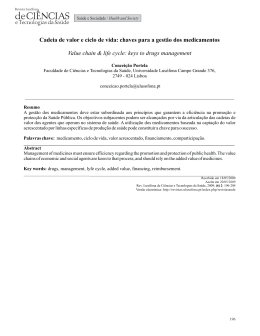CLIPPING 22, 23, 24 e 25/11/2012 CLIPPING VIVAVOZ Fonte: Correio do Povo Seção: Policia Página: 16 Data: 25/11/2012 CLIPPING VIVAVOZ Fonte: UNIAD Seção: Página: Data: 23/11/2012 Comissão aprova cadastro para motorista alcoolizado e penas mais duras Agência Câmara de Notícias A Comissão de Viação e Transportes aprovou na quarta-feira (21) o Projeto de Lei 3679/12, do deputado Washington Reis (PMDB-RJ), que dobra a multa e a suspensão do direito de dirigir para motoristas alcoolizados. A proposta também cria o Cadastro Negativo de Condutores (CNC), um banco de dados de acesso público com os nomes dos infratores autuados por conduzir sob a influência do álcool ou outra substância psicoativa. Segundo o texto, o CNC seria criado e operado pelo Conselho Nacional de Trânsito (Contran), órgão máximo do trânsito no País. O texto altera o Código de Trânsito Brasileiro (Lei 9.503/97). De acordo com a proposta, a multa sairia dos atuais R$ 957,70 para R$ 1.915,40. Além disso, a suspensão da carteira de habilitação passaria de um ano para dois anos. O projeto recebeu parecer favorável do relator, deputado Alexandre Santos (PMDBRJ). Ele elogiou a criação do cadastro dos motoristas alcoolizados. Segundo o parlamentar, a medida “contribui para inibir o comportamento temerário de motoristas embriagados ou drogados, devido aos controle social, assegurado pelo livre acesso aos seus dados por todos os interessados”. Ele afirmou ainda que a duplicação da multa e a suspensão também contribuem para desencorajar “o comportamento irresponsável de dirigir após consumir bebida ou droga”. Tramitação O projeto, que tramita em caráter conclusivo, será examinada agora na Comissão de Constituição e Justiça e de Cidadania. CLIPPING VIVAVOZ Fonte: Guardian Seção: Página: Data: 22/11/2012 World's biggest independent drug use survey is launched Global Drug Survey collects detailed information about what drugs people use, why and how often Drugs covered by the survey include ecstasy (pictured), cannabis, alcohol, tobacco, 'legal highs' and prescription medicines. Photograph: Alamy The world's biggest independent survey of drug use, collecting detailed data on the drug experiences of tens of thousands of people, launches on Thursday. The Guardian, along with a range of media partners across the globe, is supporting the survey, which asks participants about what drugs they use, why they take them and how often, and what the social, medical and legal consequences of their drug use are. Drugs covered by the survey include cocaine, ecstasy, cannabis, ketamine, mephedrone, alcohol, tobacco, "legal highs" and prescription medicines such as temazepam, Viagra and opioid painkillers. You can access the 2013 drug survey here. Last year's survey was completed by 15,500 respondents. The results, published in March and reported all over the world, provided a comprehensive, up-to-date picture of people's drug habits and experiences. The 2013 survey, which is online and takes about 20 minutes to complete, is anonymised and confidential. It is conducted by Global Drug Survey (GDS), an independent, self-funded data mapping agency. New areas of research in this year's survey include: • Drugs and sex: who uses what drugs for sex, and how do different drugs affect sexual performance? • Drugs and violence: to what extent does drug taking contribute to violent behaviour, and which drugs are most likely to trigger it? • Drugs and pleasure: using a specially designed tool called the Net Pleasure Index (developed with the help of Prof David Nutt) we aim to find out which drugs are associated with the best pleasure/harm ratio, and what level of drug use seems to strike the best balance of pleasure and harm. • Drugs policy: how would changes in drug policy affect your drug taking? • Prescription drug use: who uses prescription drugs, and where do they get them? • Drug trends: which drugs are the most popular, how much do they cost and what's new? The 2013 survey will be open until late December. The results will be published next March by the Guardian, and the survey's other media partners: NBC in the US; Fairfax Media in Australia and New Zealand; and in the UK, Mixmag and Gay Times. GDS, which was created by Adam Winstock, a consultant addiction psychiatrist and researcher based in London, also runs the drugs meter app which enables users to compare their drug use against that of thousands of other people across the globe. Full Guardian coverage of last year's drug survey can be found here.
Baixar
